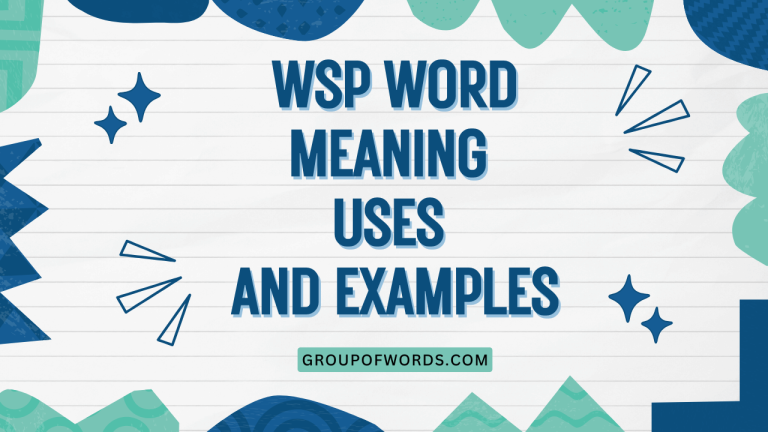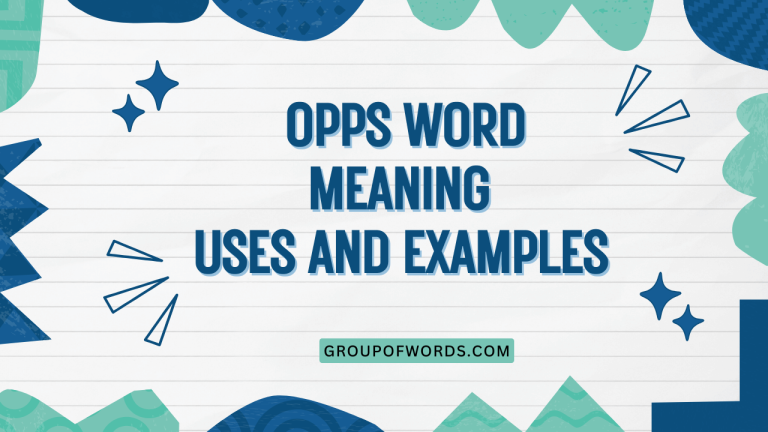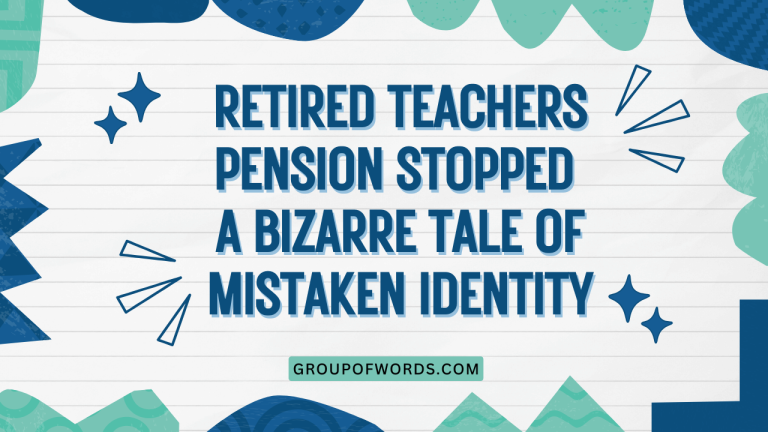Teachers Embark on a New School Year: A Grammar Guide
The phrase “teachers embark on a new school year” is a common and evocative expression, but its grammatical underpinnings are often taken for granted. Understanding the mechanics of this seemingly simple sentence can unlock deeper insights into verb tenses, subject-verb agreement, and the nuances of English grammar.
This article serves as a comprehensive guide, meticulously dissecting each component of the phrase to provide a clear and accessible learning experience. Whether you’re an ESL student, a seasoned educator, or simply a grammar enthusiast, this guide will equip you with the knowledge to confidently analyze and utilize similar constructions in your own writing and speech.
By exploring the grammatical foundations of this phrase, we’ll delve into the present tense, the use of collective nouns, and the implications of the prepositional phrase. We’ll also address common errors and provide practical exercises to solidify your understanding.
This comprehensive approach will not only enhance your grammatical accuracy but also sharpen your overall command of the English language.
Table of Contents
- Definition and Overview
- Structural Breakdown
- Verb Tense: Present Simple vs. Present Continuous
- Subject-Verb Agreement
- Collective Nouns: “Teachers”
- Prepositional Phrase: “on a new school year”
- Examples
- Usage Rules and Considerations
- Common Mistakes
- Practice Exercises
- Advanced Topics
- Frequently Asked Questions (FAQ)
- Conclusion
Definition and Overview
The phrase “teachers embark on a new school year” describes the action of teachers beginning or commencing a new academic year. It signifies the start of their professional duties, preparing for and engaging in teaching activities.
The phrase is grammatically straightforward but offers opportunities to explore several key concepts.
At its core, the phrase is a simple sentence consisting of a subject (“teachers”), a verb (“embark”), and a prepositional phrase (“on a new school year”). The verb “embark” implies a beginning, a journey, or an undertaking.
The prepositional phrase specifies the nature of this beginning – the start of a new school year. Understanding the individual components and their interaction is essential for grasping the overall meaning and grammatical structure.
Structural Breakdown
To fully understand the phrase, let’s break it down into its constituent parts:
- Subject: teachers – This is a plural noun, indicating multiple individuals.
- Verb: embark – This is the present tense, third-person plural form of the verb “to embark.”
- Preposition: on – This preposition connects the verb to the noun phrase.
- Article: a – This is an indefinite article, specifying a single, unspecified school year.
- Adjective: new – This adjective describes the school year.
- Noun: school year – This is a compound noun, referring to the academic year.
The structure of the sentence follows a Subject-Verb-Prepositional Phrase pattern, which is a common and fundamental structure in English grammar. Recognizing this pattern allows for easier parsing and understanding of similar sentences.
Verb Tense: Present Simple vs. Present Continuous
The use of the present simple tense (“embark”) is significant. It suggests a habitual or recurring action.
In this context, it implies that teachers regularly begin a new school year. It is important to understand the distinction between present simple and present continuous tense.
Present Simple
The present simple tense is used to describe habits, routines, general truths, and facts. It indicates actions that occur regularly or are generally true.
Example: Teachers prepare lessons. (This is a general truth.)
Present Continuous
The present continuous tense is used to describe actions that are happening now or around now. It emphasizes the ongoing nature of the action.
Example: Teachers are preparing lessons. (This is happening at this moment or around this time.)
In the original phrase, using “are embarking” (present continuous) would suggest that the teachers are in the process of beginning the new school year at this very moment. While grammatically correct in certain contexts, “embark” (present simple) is generally preferred because it conveys the recurring nature of the event.
Subject-Verb Agreement
Subject-verb agreement is a fundamental rule of English grammar. It states that the verb in a sentence must agree in number with its subject.
If the subject is singular, the verb must be singular. If the subject is plural, the verb must be plural.
In the phrase “teachers embark on a new school year,” the subject “teachers” is plural. Therefore, the verb “embark” is used in its plural form.
If the subject were singular (e.g., “a teacher”), the verb would need to be in its singular form (e.g., “embarks”).
Here’s a table illustrating subject-verb agreement:
| Subject | Verb | Example Sentence |
|---|---|---|
| Teacher (singular) | embarks | A teacher embarks on a new school year with enthusiasm. |
| Teachers (plural) | embark | Teachers embark on a new school year with renewed energy. |
Failure to observe subject-verb agreement results in grammatical errors that can detract from the clarity and professionalism of your writing.
Collective Nouns: “Teachers”
The noun “teachers” is a collective noun, representing a group of individuals. While “teachers” is explicitly plural, it’s important to understand how collective nouns can sometimes be treated as singular entities, depending on the context.
In the phrase “teachers embark,” “teachers” is clearly treated as plural because the verb “embark” is in its plural form. However, in other contexts, “teachers” might be used to refer to the teaching profession as a whole, in which case a singular verb might be appropriate, though less common.
Prepositional Phrase: “on a new school year”
The prepositional phrase “on a new school year” modifies the verb “embark,” providing information about the object or focus of the action. It consists of the preposition “on” followed by the noun phrase “a new school year.”
The preposition “on” indicates a relationship of commencement or entry. The article “a” specifies that it is one particular, though unspecified, new school year.
The adjective “new” describes the school year, highlighting its fresh beginning. The noun “school year” refers to the period of time dedicated to academic instruction.
Prepositional phrases are essential for adding detail and context to sentences. They can indicate location, time, manner, and other relationships between elements in a sentence.
Examples
To further illustrate the use of the phrase and its grammatical components, here are several examples:
The following tables provide various examples of sentences using the core concept of teachers starting a new school year, showcasing variations in tense, auxiliary verbs, and sentence structure.
| Sentence | Grammatical Notes |
|---|---|
| Teachers embark on a new school year filled with hope. | Basic sentence structure, present simple tense. |
| The experienced teachers embark on a new school year with confidence. | Adjective “experienced” adds detail. |
| All the teachers embark on a new school year, eager to meet their students. | “All” quantifies the subject. |
| The dedicated teachers embark on a new school year after a relaxing summer break. | Prepositional phrase “after a relaxing summer break” adds temporal context. |
| Tomorrow, the teachers embark on a new school year. | Adverb “tomorrow” indicates future time. |
| The enthusiastic teachers embark on a new school year with innovative ideas. | Adjective “enthusiastic” and prepositional phrase “with innovative ideas” add detail. |
| Despite the challenges, the teachers embark on a new school year with determination. | “Despite the challenges” adds a contrasting element. |
| The teachers embark on a new school year, ready to inspire their students. | Participle phrase “ready to inspire their students” adds information. |
| As always, the teachers embark on a new school year with professionalism. | “As always” indicates a recurring event. |
| The teachers embark on a new school year, hoping for a successful term. | Participle phrase “hoping for a successful term” expresses a desire. |
| These teachers embark on a new school year at a brand-new school. | Demonstrative adjective “these” and adjective phrase “brand-new” add specifics. |
| The science teachers embark on a new school year focusing on environmental studies. | Noun as adjective “science” and participle phrase “focusing on environmental studies” add subject matter detail. |
| After months of planning, the teachers embark on a new school year. | Prepositional phrase “After months of planning” adds context. |
| The dedicated team of teachers embark on a new school year. | “Team” provides additional detail. |
| With smiles on their faces, the teachers embark on a new school year. | Prepositional phrase “With smiles on their faces” describes their demeanor. |
| The veteran teachers embark on a new school year, sharing their wisdom. | Adjective “veteran” adds a characteristic, and participle phase indicates action. |
| The teachers embark on a new school year, prepared for anything. | Participle phrase “prepared for anything” conveys readiness. |
| The teachers embark on a new school year, united in their mission. | Participle phrase “united in their mission” conveys teamwork. |
| The teachers embark on a new school year, excited to see their students. | Participle phrase “excited to see their students” conveys anticipation. |
| Sentence | Grammatical Notes |
|---|---|
| The teachers are embarking on a new school year. | Present continuous tense, emphasizing the current action. |
| The teachers will embark on a new school year next week. | Future tense, using “will.” |
| The teachers have embarked on a new school year. | Present perfect tense, indicating a completed action with present relevance. |
| The teachers had embarked on a new school year before the pandemic. | Past perfect tense, indicating an action completed before another past action. |
| The teachers might embark on a new school year with a new curriculum. | Modal verb “might,” indicating possibility. |
| The teachers should embark on a new school year with clear goals. | Modal verb “should,” indicating recommendation. |
| The teachers must embark on a new school year with updated safety protocols. | Modal verb “must,” indicating necessity. |
| The teachers can embark on a new school year with the support of the community. | Modal verb “can,” indicating ability. |
| The teachers could embark on a new school year with more resources. | Modal verb “could,” indicating possibility under certain conditions. |
| The teachers would embark on a new school year if the funding were approved. | Conditional sentence, using “would” and “were.” |
| Having prepared all summer, the teachers embark on a new school year. | Participial phrase showing cause and effect. |
| Whether they are ready or not, the teachers embark on a new school year. | Subordinate clause using “whether.” |
| Despite their worries, the teachers embark on a new school year. | Prepositional phrase showing contrast. |
| Because of their dedication, the teachers embark on a new school year. | Prepositional phrase showing cause. |
| Until the first bell rings, the teachers embark on a new school year. | Adverbial clause showing time. |
| If all goes well, the teachers embark on a new school year. | Conditional Clause showing possibility. |
| Even though they feel tired, the teachers embark on a new school year. | Adverbial Clause showing contrast. |
| Provided they have the necessary supplies, the teachers embark on a new school year. | Conditional clause offering a condition. |
| As long as they remain enthusiastic, the teachers embark on a new school year. | Adverbial Clause showing condition. |
| Sentence | Grammatical Notes |
|---|---|
| Do the teachers embark on a new school year with enthusiasm? | Interrogative form, using “do” as an auxiliary verb. |
| When do the teachers embark on a new school year? | Interrogative form, using “when” to ask about time. |
| Why do the teachers embark on a new school year with such dedication? | Interrogative form, using “why” to ask about reason. |
| How do the teachers embark on a new school year after a long break? | Interrogative form, using “how” to ask about manner. |
| Where do the teachers embark on a new school year? | Interrogative form, asking for location. |
| Which teachers embark on a new school year with the most innovative ideas? | Interrogative form, using “which” to ask about specific teachers. |
| Don’t the teachers embark on a new school year with some trepidation? | Negative interrogative form. |
| Has the teacher embarked on a new school year yet? | Interrogative form using present perfect. |
| Will the teacher embark on a new school year with a new schedule? | Interrogative form using future tense. |
| Can the teacher embark on a new school year with limited resources? | Interrogative form using modal verb and showing possibility. |
| Should the teacher embark on a new school year with a better attitude? | Interrogative form using modal verb and showing suggestion. |
| Must the teachers embark on a new school year with new rules? | Interrogative form using modal verb and showing obligation. |
| Had all the teachers embarked on a new school year by the deadline? | Interrogative form using past perfect tense. |
| Are the teachers embarking on a new school year in the right spirit? | Interrogative form using present continuous. |
| Weren’t the teachers supposed to embark on a new school year last week? | Interrogative form using past continuous. |
| Wouldn’t the teachers prefer to embark on a new school year with more preparation? | Interrogative form using conditional. |
| Could the teachers have embarked on a new school year with more support? | Interrogative form using conditional. |
| Might the teachers embark on a new school year with a new principal? | Interrogative form using modal verb and showing possibility. |
| Ought the teachers to embark on a new school year with a clear vision? | Interrogative form using modal verb and showing obligation. |
Usage Rules and Considerations
When using the phrase “teachers embark on a new school year,” consider the following rules and guidelines:
- Tense Consistency: Ensure that the tense of the verb “embark” is consistent with the intended meaning. Use present simple for habitual actions and present continuous for actions happening now.
- Subject-Verb Agreement: Always ensure that the verb agrees in number with the subject.
- Clarity: While the phrase is generally clear, consider adding context or detail to enhance understanding. For example, you could specify the location, time, or manner of the action.
- Formality: The phrase is generally appropriate for both formal and informal contexts.
Common Mistakes
Here are some common mistakes to avoid when using the phrase:
| Incorrect | Correct | Explanation |
|---|---|---|
| Teacher embark on a new school year. | Teachers embark on a new school year. | Subject-verb agreement error. “Teacher” is singular, but “embark” is plural. |
| Teachers embarks on a new school year. | Teachers embark on a new school year. | Subject-verb agreement error. “Teachers” is plural, so the verb should be “embark.” |
| Teachers is embark on a new school year. | Teachers embark on a new school year. | Incorrect verb usage. “Is” is a singular verb and doesn’t fit the meaning here. |
| Teachers embark to a new school year. | Teachers embark on a new school year. | Incorrect preposition. The correct preposition is “on,” not “to.” |
| Teachers embark in a new school year. | Teachers embark on a new school year. | Incorrect preposition. The correct preposition is “on,” not “in.” |
Practice Exercises
Test your understanding with these practice exercises:
Exercise 1: Subject-Verb Agreement
Choose the correct form of the verb in the following sentences:
| Question | Answer Choices | Correct Answer |
|---|---|---|
| The teacher _____ (embark/embarks) on a new school year. | a) embark b) embarks | b) embarks |
| The teachers _____ (plan/plans) their lessons carefully. | a) plan b) plans | a) plan |
| Each teacher _____ (strive/strives) for excellence. | a) strive b) strives | b) strives |
| All the teachers _____ (work/works) hard. | a) work b) works | a) work |
| A dedicated teacher _____ (inspire/inspires) students. | a) inspire b) inspires | b) inspires |
| The students _____ (respect/respects) their teachers. | a) respect b) respects | a) respect |
| The teaching staff _____ (collaborate/collaborates) effectively. | a) collaborate b) collaborates | a) collaborate |
| Every teacher _____ (attend/attends) the meeting. | a) attend b) attends | b) attends |
| Several teachers _____ (participate/participates) in the workshop. | a) participate b) participates | a) participate |
| One teacher _____ (lead/leads) the project. | a) lead b) leads | b) leads |
Exercise 2: Correct the Mistakes
Identify and correct the errors in the following sentences:
| Question | Corrected Answer |
|---|---|
| The teachers is embark on a new school year. | The teachers embark on a new school year. |
| Teacher embark on a new school year. | Teachers embark on a new school year. |
| Teachers embarks on a new school year with enthusiasm. | Teachers embark on a new school year with enthusiasm. |
| The teachers embark to a new school year. | The teachers embark on a new school year. |
| Each teacher prepare carefully for the school year. | Each teacher prepares carefully for the school year. |
| All teachers is ready to start. | All teachers are ready to start. |
| A teacher are always learning. | A teacher is always learning. |
| Many teacher is dedicated to their students. | Many teachers are dedicated to their students. |
| The head teacher plan the year ahead. | The head teacher plans the year ahead. |
| Several teachers help with extracurricular activities. | Several teachers help with extracurricular activities. |
Exercise 3: Sentence Completion
Complete the following sentences using appropriate phrases:
| Question | Possible Answer |
|---|---|
| Teachers embark on a new school year, _____. | …hoping to make a difference in their students’ lives. |
| As the teachers embark on a new school year, they _____. | …feel a mix of excitement and anticipation. |
| The teachers embark on a new school year with _____. | …a renewed sense of purpose and commitment. |
| Before teachers embark on a new school year, they _____. | …spend weeks preparing their classrooms and lesson plans. |
| The teachers embark on a new school year, knowing that _____. | …they will face both challenges and rewards. |
| When teachers embark on a new school year, they _____. | …set goals for their students’ success. |
| Every year, the teachers embark on a new school year, _____. | …bringing fresh ideas and enthusiasm to their classrooms. |
| The teachers embark on a new school year, despite _____. | …the ongoing challenges in education. |
| The experienced teachers embark on a new school year, sharing _____. | …their knowledge and wisdom with new colleagues. |
| To ensure success, teachers embark on a new school year with _____. | …a collaborative and supportive approach. |
Advanced Topics
For advanced learners, here are some more complex aspects to consider:
- Figurative Language: The verb “embark” can be used figuratively to describe starting any new endeavor.
- Subjunctive Mood: While not directly applicable to the phrase, understanding the subjunctive mood can provide insights into hypothetical or desired actions related to the start of the school year.
- Variations in Meaning: Explore how the meaning of “embark” changes depending on the context and the preposition used (e.g., “embark on,” “embark in”).
Frequently Asked Questions (FAQ)
Here are some frequently asked questions about the grammar of “teachers embark on a new school year”:
- Why is it “embark on” and not “embark in” or “embark to”?
The preposition “on” is used with “embark” to indicate the commencement of a journey or undertaking. “Embark on” suggests a beginning or a start, which aligns with the idea of starting a new school year. “Embark in” would typically refer to entering a physical space, and “embark to” is not a standard usage.
- Can I use “begin” instead of “embark”?
Yes, “begin” is a suitable synonym for “embark” in this context. The phrase “teachers begin a new school year” conveys the same basic meaning.
- Is it correct to say “teachers are embarking on a new school year”?
Yes, this is grammatically correct. Using the present continuous tense (“are embarking”) suggests that the teachers are currently in the process of beginning the new school year.
- What is the difference between “school year” and “academic year”?
The terms “school year” and “academic year” are often used interchangeably. However, “academic year” might be preferred in more formal or academic contexts.
- How can I improve my subject-verb agreement skills?
Practice is key. Pay close attention to the number of the subject (singular or plural) and ensure that the verb agrees accordingly. Review basic grammar rules and work through exercises to reinforce your understanding.
- Is “teachers” always a plural noun?
Yes, in most contexts, “teachers” is a plural noun, referring to multiple individuals. However, it can sometimes be used in a general sense to refer to the teaching profession as a whole, though this usage is less common and typically requires careful contextualization.
- Can I use this phrase in a formal essay?
Yes, the phrase “teachers embark on a new school year” is appropriate for both formal and informal writing. However, ensure that the tone and style of the surrounding text are consistent with the overall purpose of the essay.
- What other words can I use to describe the start of a school year?
Other words you could use include: commence, initiate, launch, or begin. The best choice depends on the specific nuance you want to convey.
Conclusion
Understanding the grammar of the phrase “teachers embark on a new school year” provides valuable insights into verb tenses, subject-verb agreement, and the use of prepositional phrases. By dissecting each component and exploring various examples, this guide has aimed to enhance your grammatical accuracy and overall command of the English language.
Remember to practice regularly, pay close attention to subject-verb agreement, and consider the nuances of tense usage.
Mastering these fundamental grammar concepts will not only improve your writing and speaking skills but also enable you to communicate more effectively and confidently. Continue to explore the intricacies of English grammar, and you’ll find that your language abilities will continue to grow and evolve.
With consistent effort and attention to detail, you can achieve a high level of proficiency and fluency.






